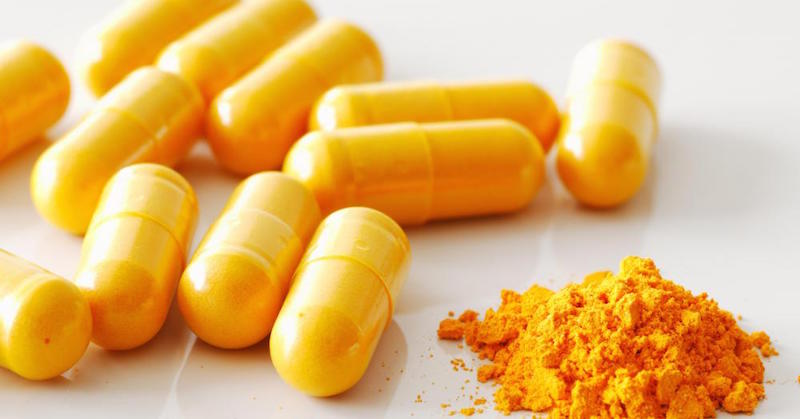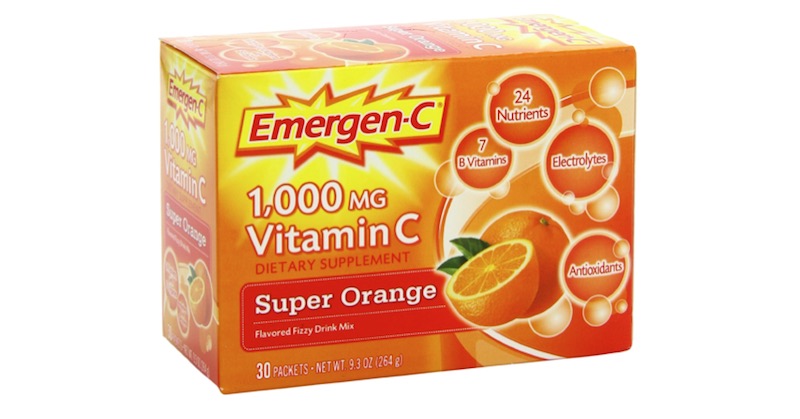Study Shows Vitamin C Supplements May Not Contain What They Claim
Last updated on
Most people are aware that vitamin C can provide a wide assortment of health benefits. It is needed to maintain healthy skin, hair, and nails, as well as a healthy digestive system—among other benefits.
While vitamin C supplements have been a popular way to ensure you receive your dose of this vitamin, it turns out that supplements may not be as effective as previously thought. Recent research has shed some light on these supplements and determined that your body may not be absorbing as much of the vitamin as you would like.
Vitamin C Supplements May Not Be Effective
Many people turn to supplements in order to receive beneficial vitamins and minerals—instead of taking the time to eat fresh fruit and vegetables. One of the most popular supplements is vitamin C. People often take it to ward off the cold or the flu, yet you may not be getting as much of the vitamin as you thought.
There are a couple of major reasons why the vitamin C supplements that you purchase are not an effective way to receive vitamin C. First off, many commercial vitamin C supplements do not actually contain as much of the vitamin as they claim.
During an independent investigation, a Canadian group found that the majority of vitamin C supplements only contained about 64 percent of the vitamin C claimed on the packaging.
Another issue is that vitamin C degrades over time, and more rapidly when exposed to light and air. It does not have a long shelf life, so the longer those vitamin C tablets sit on the shelf the less effective they are.
The worst offender was a product called Emergen-C Super Orange 1000 milligram Vitamin C tablets. These tablets only contained 332 milligrams, instead of the 1000 milligrams advertised on the label. What are you really paying for?
Vitamin C May Not Help Fight The Cold
While many vitamin C supplements contain claims on their packaging stating that they can help ward off the cold, there is no scientific backing to support these claims.
Manufacturers are actually restricted from making claims that are not backed by scientific research, yet many commercial vitamin C supplements continue to get marketed as a solution for preventing the cold or easing the symptoms of the cold.
Vitamin C and Ascorbic Acid May Cause Miscarriages
There are various reports and anecdotal evidence suggesting that consuming high doses of ascorbic acid (or vitamin C) on its own could lead to some harm in pregnant women. The theory is that the higher levels of ascorbic acid could induce the start of the menstrual cycle and may act as a natural abortifacient. Keep in mind that much of this research is anecdotal, but as with most claims they are probably grounded in some truth.
If you are pregnant or attempting to get pregnant, you may want to keep an eye on your intake of low quality ascorbic acid (vitamin C). High quality vitamin C with bioflavonoids from renowned companies should be your choice. Or, better yet still, obtain your antioxidants directly from organic fresh fruits and vegetables.
Bioflavonoids Are Needed For Proper Absorption
Another problem with vitamin C supplements is that they do not contain the necessary bioflavonoids needed for your body to absorb the vitamin C. Bioflavonoids are found in fresh produce containing vitamin C, which makes fresh fruits and vegetables the best source of the vitamin.
When you combine the fact that many commercial vitamin C supplements do not contain the amount listed on the packaging with the lack of bioflavonoids—vitamin C supplements are not that all effective. You are essentially swallowing a synthetic pill that is full of fillers. The low quality ones may even be filled with cheap fillers that may prove harmful.
Instead of relying on a vitamin supplement, look for healthy sources of vitamin C. Some of the best sources of vitamin C are rom colored fruits and vegetables, such as peppers, carrots, citrus fruits, papaya, guava, dark green vegetables, broccoli, berries, and so many more! Skip the pills and eat more fresh produce.
Sources:
https://www.cbc.ca/news/health/marketplace-vitamins-supplements-claims-1.3312957
https://www.healthaliciousness.com/articles/vitamin-C.php
Some of the links I post on this site are affiliate links. If you go through them to make a purchase, I will earn a small commission (at no additional cost to you). However, note that I’m recommending these products because of their quality and that I have good experience using them, not because of the commission to be made.



































 JOIN OVER
JOIN OVER
Comments